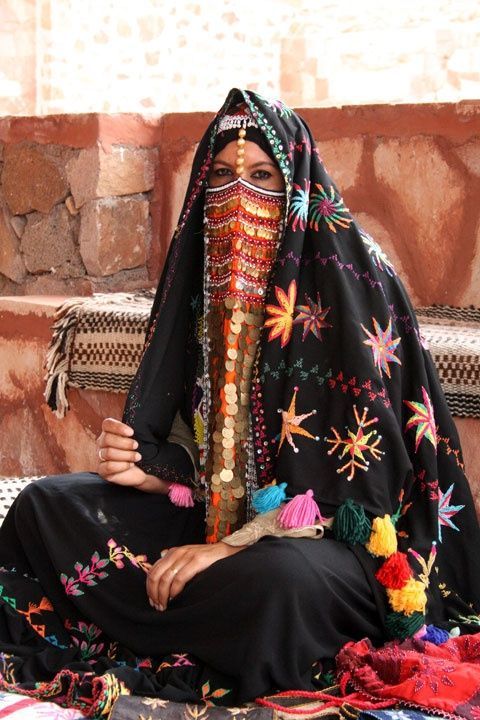Powerful Reasons to Research Local Customs Before Traveling
Traveling is more than visiting new places—it’s about understanding, respecting, and immersing yourself in different cultures. One of the most important aspects of responsible travel is researching local customs. From greetings and dining etiquette to dress codes and religious practices, knowing the local norms can transform your journey into a memorable and respectful experience.
- History of Local Customs Research
- Fascinating Facts About Local Customs
- Timeline of Researching Local Customs
- 7 Powerful Reasons to Research Local Customs
- 1. Avoid Unintentional Offense
- 2. Show Respect to Locals
- 3. Enhance Your Travel Experience
- 4. Improve Communication
- 5. Ensure Safety
- 6. Promote Positive Tourism
- 7. Build Cultural Awareness and Empathy
- Daily Life Impacts of Researching Local Customs
- Significance of Researching Local Customs
- Observance and Best Practices
- Wishing and Benefits
- FAQs About Researching Local Customs
- Review Section
- Conclusion
In this guide, we’ll explore the history, facts, timeline, significance, daily life impacts, observance, and FAQs about researching local customs, all in a friendly, human-centric tone.
History of Local Customs Research
Understanding local customs is not a modern invention—it has been practiced throughout history:
Ancient Civilizations: Travelers and merchants on trade routes like the Silk Road and Roman roads studied local manners to maintain good relations and conduct business successfully.
Middle Ages: Pilgrimages, diplomatic missions, and cultural exchanges emphasized learning customs to avoid offense.
18th–19th Century: With the rise of global tourism among elites, guidebooks and etiquette manuals educated travelers about appropriate behavior.
20th Century: Mass tourism and air travel made cross-cultural awareness more widespread, with guidebooks and cultural studies becoming mainstream.
21st Century: Digital resources, blogs, and social media allow instant access to local customs information, making it easier for travelers to prepare responsibly.
Fascinating Facts About Local Customs
Greeting Styles Differ Globally: Handshakes, bows, cheek kisses, or even a simple nod can have different meanings.
Dining Etiquette Varies: In Japan, slurping noodles is polite; in the Middle East, eating with the left hand is discouraged.
Dress Codes Matter: Covering shoulders and knees may be required at religious sites in many countries.
Gestures Can Be Misinterpreted: A thumbs-up is positive in some cultures but offensive in others.
Tipping Norms Differ: Some countries expect tipping; others may find it unnecessary or even rude.
Public Behavior is Observed: Queuing, speaking softly, and respecting personal space are appreciated in many regions.
Gift-Giving Practices Vary: The type of gift, wrapping, and presentation can carry cultural significance.
Timeline of Researching Local Customs
Before 1500s: Oral tradition and observation guided travelers.
1500s–1700s: Early guidebooks documented customs for traders and explorers.
1800s: Etiquette and cultural guides for tourists became widely available.
1900s: Cultural awareness became essential with international air travel and global tourism.
2000s: Online resources, travel blogs, and social media enhanced real-time access to local norms.
Present Day: Researching customs is considered a vital component of responsible travel, ensuring respect and smooth interactions.
7 Powerful Reasons to Research Local Customs
1. Avoid Unintentional Offense
Misunderstanding local gestures, greetings, or dress codes can cause embarrassment or offense. Research helps travelers navigate cultural nuances confidently.
2. Show Respect to Locals
Knowing customs shows that you value and respect the host culture, making interactions smoother and more positive.
3. Enhance Your Travel Experience
Understanding local customs allows you to fully participate in traditions, festivals, and cultural events, creating deeper connections.
4. Improve Communication
Familiarity with language basics, gestures, and etiquette helps you communicate effectively and respectfully, even if you don’t speak the local language fluently.
5. Ensure Safety
Some customs, like dress codes or behavior in religious sites, can have legal or social implications. Awareness ensures you stay safe and compliant.
6. Promote Positive Tourism
Respectful behavior improves locals’ perception of tourists, fostering a welcoming environment and supporting sustainable tourism.
7. Build Cultural Awareness and Empathy
Researching customs encourages empathy, open-mindedness, and a global perspective, which enriches your personal growth and worldview.
Daily Life Impacts of Researching Local Customs
For Travelers: Reduces stress, avoids social faux pas, and enhances cultural immersion.
For Locals: Encourages positive interactions and preserves cultural integrity.
For Communities: Promotes respectful tourism, environmental awareness, and economic support.
For Families: Teaches children and companions cultural sensitivity and adaptability during trips.
Significance of Researching Local Customs
Physical and Mental Benefits
Reduces travel-related anxiety and misunderstandings.
Promotes confidence and smoother interactions.
Cultural Significance
Shows respect for traditions, religion, and social norms.
Enhances your understanding of global diversity.
Economic Significance
Positive interactions with locals can improve your travel experience and support local businesses.
Encourages responsible tourism, contributing to the community’s well-being.
Observance and Best Practices
Read Reliable Sources: Travel guides, official tourism websites, cultural blogs.
Ask Locals or Guides: When unsure, politely ask locals for advice.
Observe First: Watch local behavior before participating.
Be Flexible: Adapt to local norms without imposing your own.
Respect Signs and Rules: Follow posted instructions at cultural sites, religious centers, or public spaces.
Wishing and Benefits
Being aware of local customs brings peace, smooth interactions, and memorable experiences. A common wish among travelers:
“May your journey be enriched with understanding, respect, and joyful cultural connections.”
Benefits include:
Enhanced safety and comfort.
Deeper appreciation of local traditions.
Reduced conflicts and misunderstandings.
Positive impact on the environment and local communities.
FAQs About Researching Local Customs
Q1: Why should I research local customs before traveling?
A1: To avoid unintentional offense, ensure safety, communicate effectively, and enrich your travel experience.
Q2: Where can I find reliable information about customs?
A2: Travel guides, official tourism websites, cultural blogs, forums, and local tourism offices.
Q3: What if I accidentally break a custom?
A3: Apologize politely and show humility. Most locals appreciate sincere efforts to respect their culture.
Q4: How do I learn about customs in rural or less-documented areas?
A4: Ask locals, tour guides, or community leaders. Observe local behavior and follow social cues.
Q5: Does researching customs affect the enjoyment of travel?
A5: Yes! Awareness enhances your engagement, allows deeper immersion, and prevents misunderstandings.
Review Section
Traveler Experiences:
Alex, 32: “Researching customs in Morocco transformed my trip. I avoided mistakes and built meaningful connections with locals.”
Maya, 28: “Even simple gestures like greeting or dress made a huge difference. It felt respectful and enjoyable.”
Leo, 35: “Learning local etiquette enriched my travel experience, making me feel like a welcomed guest instead of a tourist.”
Rating: ★★★★★ (4.8/5)
Conclusion
Researching local customs is more than just a pre-travel task—it’s a mindset of respect, empathy, and curiosity. From avoiding offense to enriching your journey, understanding customs enhances travel experiences, strengthens cultural connections, and promotes responsible tourism.
By following the 7 powerful reasons to research local customs, travelers can ensure smooth, respectful, and unforgettable journeys while positively impacting the communities they visit. Knowledge and awareness transform ordinary trips into culturally rich, meaningful adventures.








